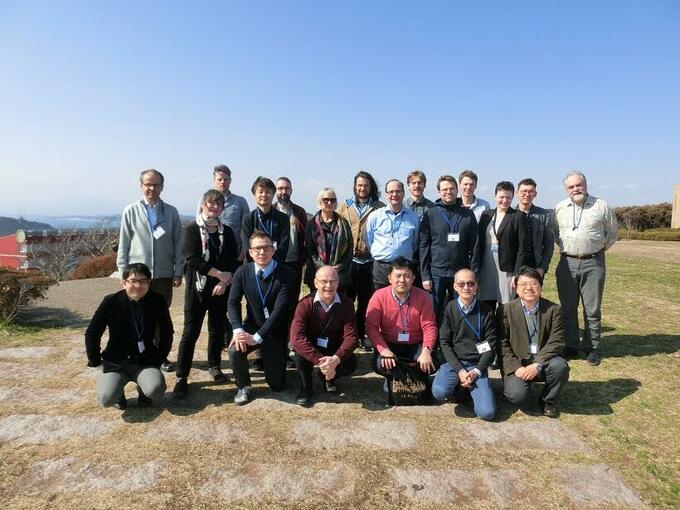NO.132 Modelling Cultural Processes
March 11 - 14, 2019 (Check-in: March 10, 2019 )
Organizers
- Gerhard Heyer
- Leipzig University, Germany
- Mitsuyuki Inaba
- Ritsumeikan University, Japan
- Martin Roth
- Leipzig University, Germany

Overview
Description of the meeting
When modeling real life dynamics, computer science has up till now mainly been concerned with business processes. However, with the intrusion of data-rich digital media and applications such as computer games and web communication in everbody’s everyday life, the modeling of cultural processes becomes possible and requires an equally thorough analysis. The future of digitization will to a large extent depend on how successful computers and computing technologies can be adapted to different cultures of gathering, processing, altering and creating various types of information. While we assume that business processes can be described in a strictly logical manner focusing on preconditions and sequential actions, cultural processes such as the formation of public opinion in web fora, for example, happen to a high degree in parallel without much interdependencies, unpredictability of agent’s decisions, and surprising feedback loops, just to name a few characteristics.
In our workshop we want to address this challenge by bringing together computer scientists and media scientists from Japan and Germany in a truly intercultural discussion. In order to better understand and model cultural processes as complex, self-regulating, media based communication dynamics, we want to look at digital manifestations of cultural processes in various media (video games, SNS, VR/AR), and discuss analyses that have already been carried out by participants. Different kinds of interpretations from computer science and media science, as well as the German and Japanese perspectives, will allow us to look for and discuss differences and complementary views among the participating scientists. This discussion will help to summarize the state of art and highlight areas where further research is needed.
On the the media and cultural studies side, we shall focus on the following problems found in cultural analysis:
- Processes of subjectivation and identity work;
- Shifting contents, shifting meanings across media, across time;
- Discursive constructions of culture;
- Transnational networks of knowledge.
For each of these areas, a team of researchers involving representatives from the humanities and computer science will discuss and propose a theoretical and methodological framework capable of modeling the cultural processes in question. In combination, the results achieved by each team will allow us to develop a new perspective on the global significance and status of digital phenomena in their construction by actors and critics, as well as questions arising in comparison between different contents and cultures. In effect, we expect to contribute substantially to the following (and presumably more) problems:
- theory, in particular a clear sense of the theoretical basis for our analysis;
- data, especially data sources, as well as access and analytical strategies to different kinds of data resources such as computer games and log files of how they have been played, or social media discussions on controversial topics;
- requirements, in particular the development of criteria that help to describe cultural dynamics in general as well as in detail, such as the nature and role of interpretations, or cultural identity;
- basic notions of modelling, such as the applicability of business process models and network theory, as well as, ideally, new models for specific contexts; and
- tools for modelling, such as different kinds of text mining tools, or visualizations for the dynamics of cultural processes.
The workshop will address basic aspects of modeling cultural processes and developing software to support cultural dynamics. Apart from the enrichment of perspectives on our topic, the mixed German and Japanese group will allow us to discuss differences between the cultural engineering and computer-based modeling that have evolved due to different historical developments and cultural traditions of perception and action, in particular visualization. The research agenda that we shall deliver as a result of the workshop will relate to representations, simulations, and evaluations that can equally serve as a basis for intercultural and comparative media studies and a better development of future software that involves representations of cultural processes. Ultimately, the workshop challenges us to think about the status of hermeneutics and the relation between the humanities and computer sciences today, and highlights the ways in which both scientific perspective may benefit from and stimulate each other.
